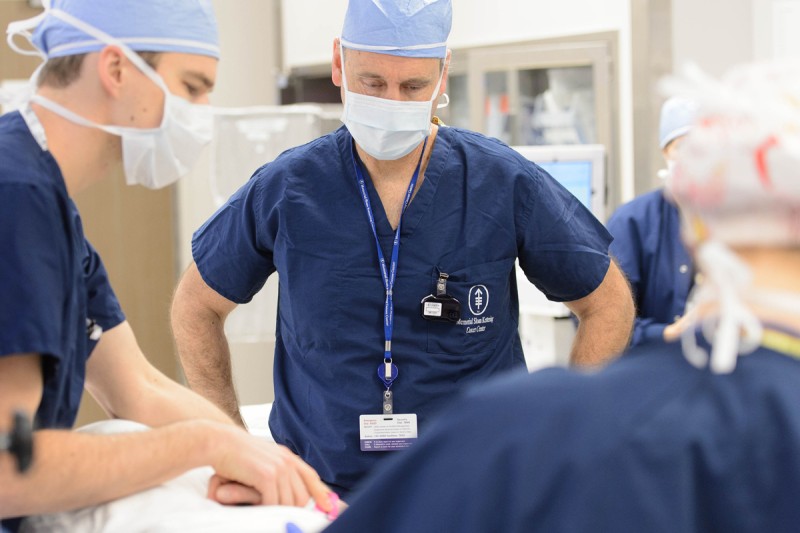
Salivary gland cancer is a rare type of head and neck cancer. It begins when the cells that make up the salivary glands grow out of control and form lesions or tumors.
Benign (noncancerous) tumors can also form in the salivary glands, and these are much more common. Around 70 percent of salivary gland tumors are benign.
Most tumors begin in the parotid glands. They are the largest of the salivary glands, located just in front of the ears. Parotid gland tumors are often benign. Tumors also form in the other salivary glands, such as the submandibular gland, the sublingual gland, and the minor salivary glands. Tumors in these locations are more likely to be cancer.
Surgery is usually the main treatment for salivary gland tumors. Radiation therapy is also a very common and effective part of care. Drug therapy is more often recommended for advanced salivary gland cancers and may be offered through a clinical trial testing new treatments to see how well they work.
Memorial Sloan Kettering is a leading center for the treatment of salivary gland tumors. U.S. News consistently ranks us as a top hospital in the nation for head and neck care.
What You Need to Know about Salivary Gland Cancer
- Salivary gland surgery is best performed by doctors who are board certified in head and neck care. At MSK, our head and neck surgeons’ primary goal is to remove the tumor completely. Equally important is our dedication to preserving your appearance and function. In particular, we have great expertise in parotidectomy, the surgery to remove a tumor in the parotid glands.
- Other aspects of salivary gland cancer care include radiation therapy and drug therapies. MSK’s radiation team has special training in caring for people with salivary gland tumors.
- We offer clinical trials using tumor-sequencing technology to find new treatment approaches to many types of salivary gland cancer. We are exploring drug therapies, ranging from hormone therapy to immunotherapy.
- Experts in rehabilitation, speech pathology, dental oncology, and more are an essential part of MSK’s holistic approach to salivary gland cancer care.
We’re available 24 hours a day, 7 days a week


